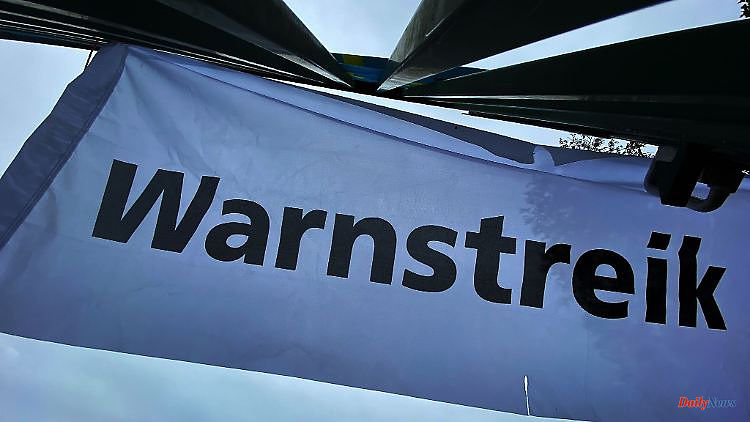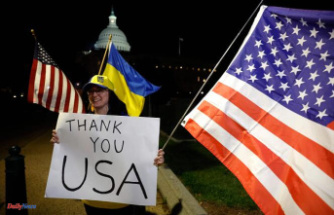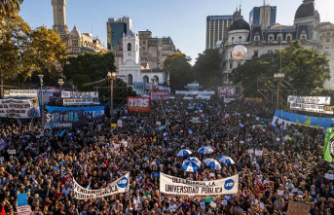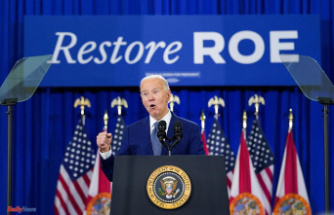Collective bargaining on relief and job security at the Gießen-Marburg University Hospital will continue this Thursday. With warning strikes, employees are underlining their demands in advance. The ultimatum issued in December expires in two and a half weeks.
Gießen/Marburg (dpa/lhe) - With a two-day warning strike, employees of the University Hospital Gießen and Marburg (UKGM) want to underpin their demands for a collective agreement to relieve and secure jobs. According to Verdi union secretary Fabian Dzewas-Rehm, around 450 employees from various non-medical professional groups took part in the work stoppages, which are expected to last up to and including Tuesday. On Tuesday, he estimates, there should be around 800 participants. At the same time, employees would be advised at a two-day hospital council on their demands and on how to proceed after an ultimatum has expired. The clinic management criticized the actions.
According to Verdi, more than 4,000 UKGM employees signed a 100-day ultimatum to their employer in December 2022, which expires on March 24. According to this, the workers declared their willingness to strike as a last resort for their demands for good staffing and job security if there were no improvements after the expiry of the ultimatum. It was only at the end of December that the state of Hesse, Rhön Klinikum AG and Asklepios Kliniken GmbH, as the private majority owners of the hospital, agreed to invest 850 million euros in the university hospital over the next ten years after a two-year tug-of-war.
"There is no reason for the warning strikes started today by the Verdi union," said Gunther Weiß, chief negotiator for the employers and CEO of UKGM. Although the union did not want to present its demands until the next negotiation date this Thursday, it called for the warning strikes.
Achieving a viable conclusion within a few days of presenting the specific demands "represents an enormous challenge that is almost impossible to implement," said Weiß. The most important common goal should be framework conditions "that help us to recruit additional employees or to persuade colleagues who are already working for us to increase their contractually agreed working hours. This can help us to achieve real relief". In order to ensure the care of the patients, emergency service agreements were concluded for the duration of the warning strike.












